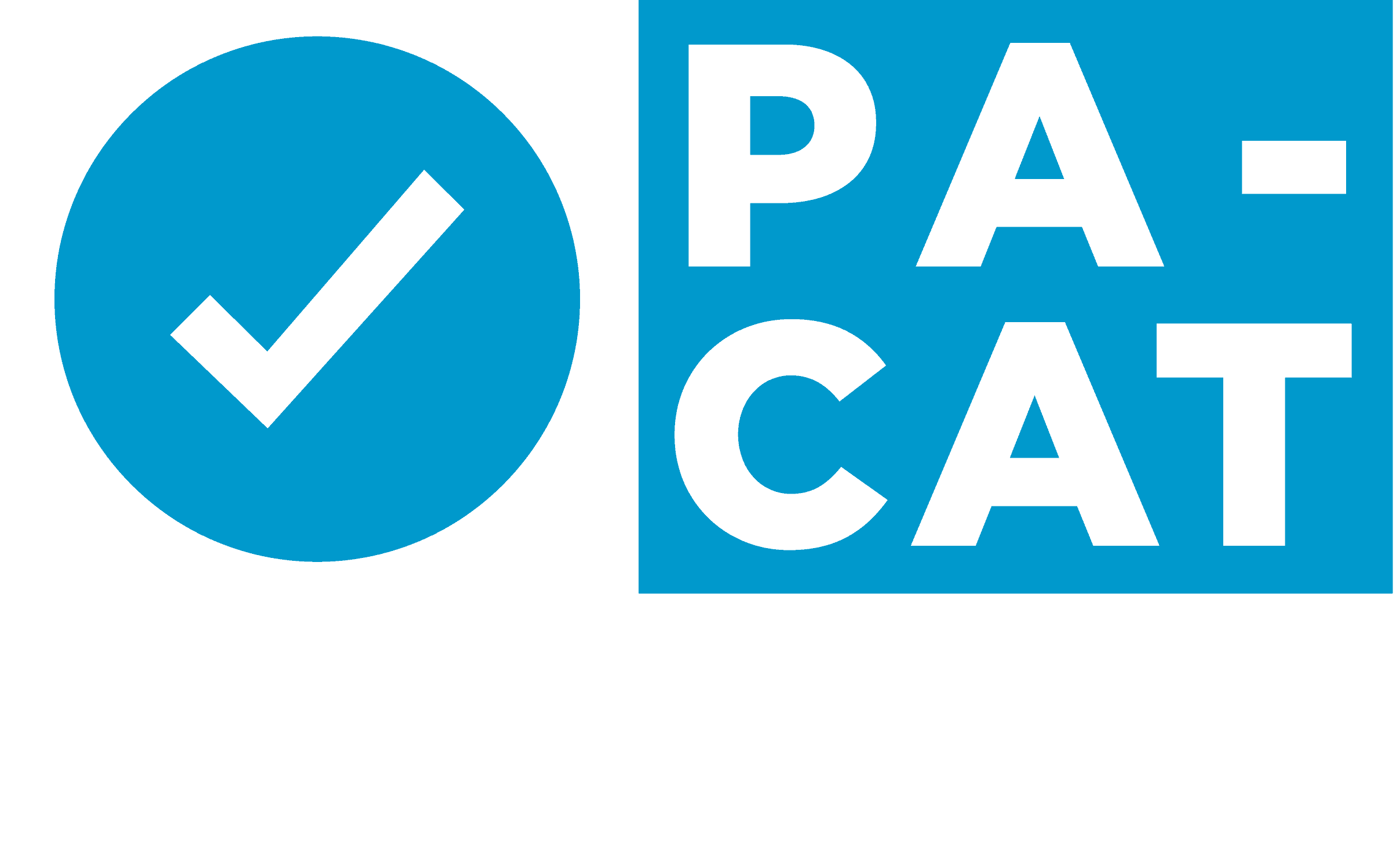
First PA-CAT Webinar, A Big Success
First PA-CAT Webinar, A Big Success
Over the past few months, Exam Master has been increasingly engaged in conversations with PA educators regarding the 2020 launch of the Physician Assistant College Admissions Test (PA-CAT). With registration for the PA-CAT opening next month, we recognized the usefulness of bringing the PA education community together to discuss important updates and the commercial launch of the test. We decided to partner with the principal investigators of the PA-CAT project, Scott L. Massey, PhD, PA-C from Central Michigan University and Johnna Yealy, PhD, PA-C, from the University of Tampa to help plan our first informational webinar.
In preparation for the PA-CAT webinar, Dr. Massey and Dr. Yealy worked with Exam Master to decide what information would be most valuable to a program deciding to implement the PA-CAT into their admissions process. We knew it would be important to provide impactful and engaging information to participants of the webinar, such as the usefulness of the PA-CAT, the opening of PA-CAT registration this January, and the test becoming available for students to take in May.
The PA-CAT Webinar
On December 6th, we hosted the PA-CAT Webinar for PA educators, and it was a great success. The webinar was led by Dr. Massey and Dr. Yealy, and moderated by Exam Master’s President and CEO, Matt Bader. PA educators from programs across the country gathered together to learn about things like the launch of the PA-CAT, the details of the test, and how it will benefit their admissions process in the future.
Dr. Massey and Dr. Yealy provided a dynamic presentation that provided detailed information about the PA-CAT. The review of information was very well received by the participants of the webinar. The presentation covered the official score reporting process, assessment considerations, and the content of the test.
During the discussion, Dr. Massey and Dr. Yealy provided programs with three critical reasons to use the tool:
- PA-CAT scores can be used to help identify candidates suitable for interviews.
- PA-CAT scores can be used to help select among similarly qualified interview candidates
- PA-CAT scores can be used to identify candidates who meet overall admissions criteria but could benefit from a pre-matriculation program.
The PA-CAT webinar participants received tips on how to strategically plan for implementation. The tips for strategic planning included considering when the admissions cycle begins, providing notice to prospective candidates prior to the beginning of the admissions cycle, and more. It is also recommended that while trying to secure approval to implement the PA-CAT educators should meet with admissions to provide information, provide evidence regarding implementation, and determine if the graduate school mandates the GRE.
Q&A Session
At the end of the presentation, we were able to engage in Q&A session with participants of the webinar. It was our endeavor to answer as many questions in as much detail as possible. The questions asked were similar to the questions we have heard during many conversations with PA educators over the past few years. Check out a few of them here.
Q: What have you done to mitigate bias in the exam?
Scott L. Massey – We compare the populations to see if there’s any differences in the students’ outcomes, but it’s going to take time to be able to determine that. Through our psychometrician, for example, they’re trying to look at individual questions to see if there’s any significant difference between different ethnic groups in terms of the performance. [So] there’s no exact answer for that, it’s going to take time; but the efforts are there to try to achieve that.
Q: In the event that we gain approval from leadership to use the PA-CAT in replacement of the GRE, would there be any fee or cost for the program, or would the cost be only on the candidate?
Matt Bader – So the way the program is set up is the fee for the exam is paid by the candidates. That’s fairly standard practice. There’s no particular cost to the program. Now since Exam Master has relationships with many PA programs, we are looking at some supplementary kinds of things that we can do around the PA-CAT like the pre-matriculation program, for example. So, if you had your candidates and you select from a group of candidates and you get that scoring feedback, we will have a program for any of those that may need additional help. Apart from that there is no cost to the program at all.
Q: If an applicant takes the PA-CAT and the program does not participate, can the applicant still have the results sent to the program?
Matt – Students, as we know, apply to multiple programs. Some of the programs they may be applying to don’t require the PA-CAT, some may recommend the PA-CAT, [and] some may not have an indication at all. Our understanding is [that] so long as the student wants to make that information available to any program, that they can do so. So, I don’t see any reason why that cannot happen.
Jim – For CASPA, the student will select the schools he/she wants to send the score reports to. Also, that score report will be attached to the student’s overall record so if a school is not participating with the PA-CAT, they still would receive that score report on that individual student and they would just disregard the score.
The PA-CAT 2020
Exam Master is dedicated to supporting all PA programs during the process of implementing the PA-CAT into their admissions process. We are very excited for the launch of the commercial version of the PA-CAT in 2020. There are just a few weeks until the PA-CAT registration window opens in January. The test will then be available at over 5,000 Prometric testing centers in the United States in May 2020. It is important to provide as much information to PA programs as possible. If you have any questions or would like to schedule a conversation about the PA-CAT, please schedule here.
Click here to watch the PA-CAT Webinar with Scott L. Massey, PhD, PA-C and Johnna Yealy, PhD, PA-C.


